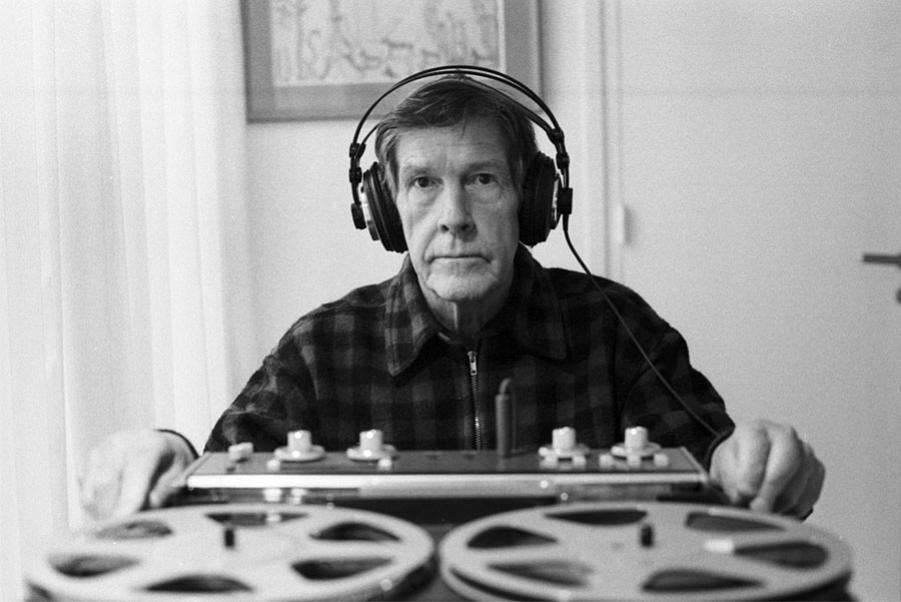
The Magic of John Cage
There is much that can be said about a person that is so passionate about playing as he is about talking about music, John Cage manages to bring so much to the table from experimental music, great prowess as a pianist and a unique knowledge that practicaly makes him one of the most interesting philosphers of our time.
In this article we will be focusing on some of Cage’s most important topics so that by the end we have a better understanding of his point of view and music in general.
John Cage was born in Los Angeles in 1912, he studied at Pamona College, and later at UCLA with famous composer Arthur Schoenberg. After his time as a student he came to the conclusin that the music he wanted to make was very different from the music of his time, or any music by that matter, he said “I certainly had no feeling for harmony, and Schoenberg responded with ‘You’ll come to a wall you won’t be able to get through.’ only to make Cage determined to say, ‘I’ll beat my head against that wall.’”
Experimental Music
Cage said:
One does not make just any experiment but does what must be done. By this I mean one does not seek by his actions to arrive at money but does what must be done; by this I mean one does not seek by his actions to arrive at fame (success) but does what must be done; one does not seek by his actions to provide pleasure to the senses (beauty) but does what must be done; one does not seek by his actions to arrive at the establishing of a school (truth) but does what must be done
John Cage, “Writing’s through John Cage’s Music, Poetry + Art”.
In a way, a musician arrives to a complete musical work because it is some sort of second nature, or as if it’s every musician’s personal duty. This is an important thing to have in mind when thinking about experimental music and how the approach can be a success or utter failure.
In the 1930s Cage began experimenting with new ways to play and compose.
Whereas, in the past, the point of disagreement has been between dissonance
John Cage, “Writing’s through John Cage’s Music, Poetry + Art”
and consonance, it will be, in the immediate future, between noise
and so-called musical sounds. The present methods of writing music,
principally those which employ harmony and its reference to particular
steps in the field of sound, will be inadequate for the composer, who will
be faced with the entire field of sound. New methods will be discovered,
bearing a definite relation to Schoenberg’s twelve-tone system and present
methods of writing percussion music and any other methods which
are free from the concept of a fundamental tone.
Cage’s view on the world had a part in the making of post modern music, while understanding that post modernism is a continuation of sorts of the modern era, thus, we are looking at music that follows some patterns of modern music with some other elements. Cage understood this, and many of his works in the 1950s were already considered post modern by critics.
Philosophy of John Cage

During the late 1940s, Cage began studying asian culture and ideas through zen and indian philosophy in his words:
It was also at the Cornish School that I became aware of Zen Buddhism, which later, as part of oriental philosophy, took the place for me of psychoanalysis. I was disturbed both in my private life and in my public life as a composer. I could not accept the academic idea that the purpose of music was communication, because I noticed that when I conscientiously wrote something sad, people and critics were often apt to laugh. I determined to give up composition unless I could find a better reason for doing it than communication. I found this answer from Gira Sarabhai, an Indian singer and tabla player: The purpose of music is to sober and quiet the mind, thus making it susceptible to divine influences.
This last phrase says a lot about Cage’s state of mind during his compositions. With these influences and the avant garde context that he was in, including his admiration for Marcel Duchamp and other dadaist propositions, it became clear that his mind as a musician was going towards a new idea of music, one that relied on something more simple, just sounds and silence, while understanding that silence doesn’t exist and that sounds are more present than we think, it doesn’t have to be a perfect melody in order to feel the peace of meditation through the sounds of silence.
Some consider that he is one of the greatest musicians in the world, others believe he wasn’t really a genius but the truth is that his ideas rang a bell inside many people’s heads and to this day, his compositions receive high praise around the world
My favorite music is the music I haven’t yet heard. I don’t hear the music I write. I write in order to hear the music I haven’t yet heard.
John Cage
